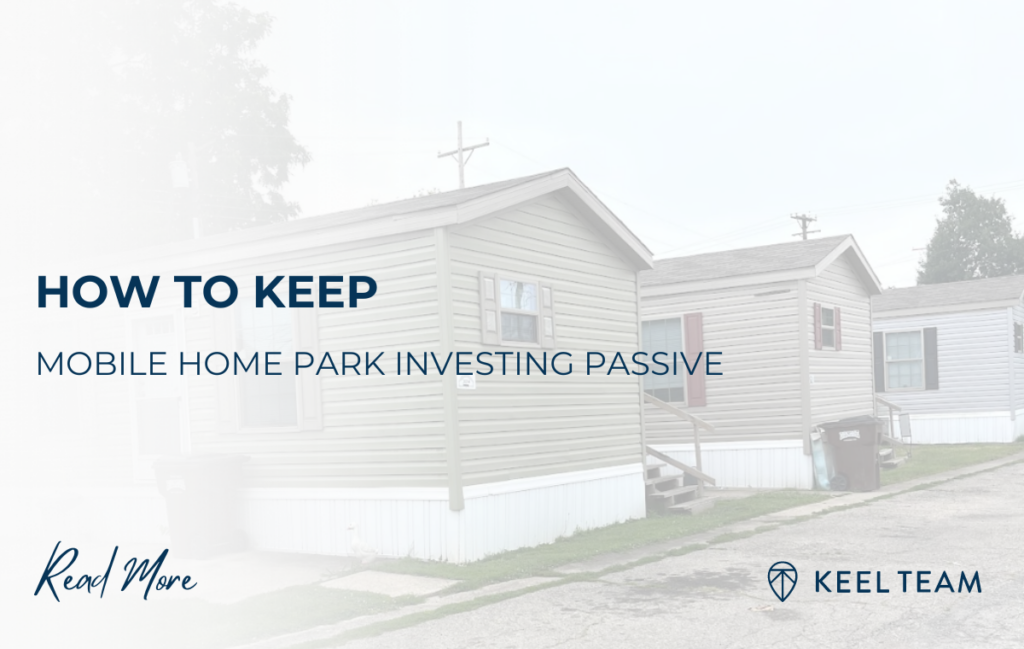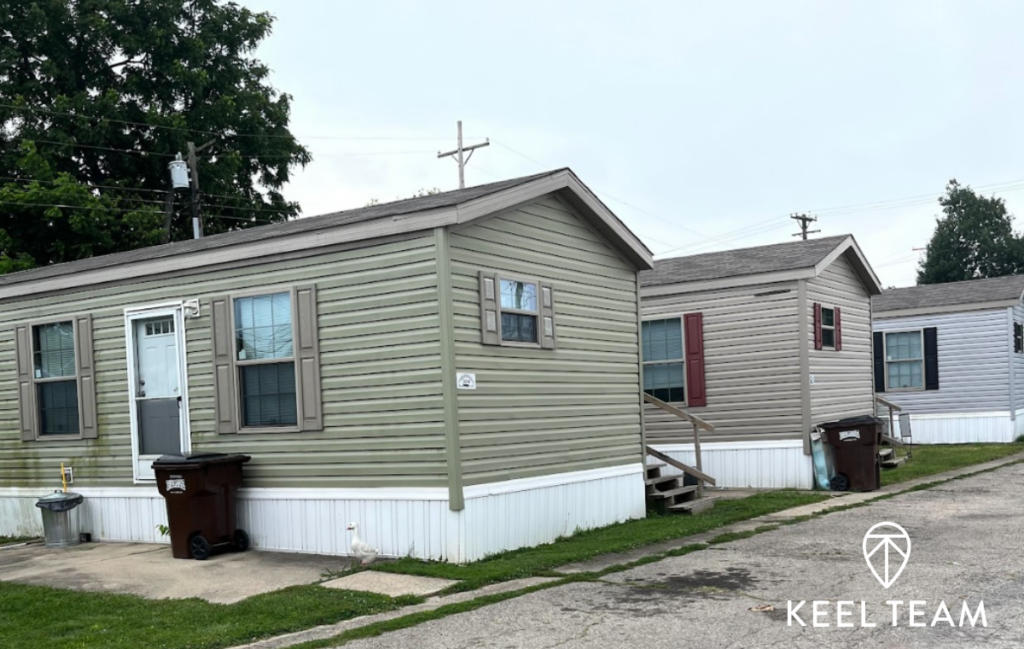How to Keep Mobile Home Park Investing Passive
-
 Tristan Hunter - Investor Relations
Tristan Hunter - Investor Relations

Investing in mobile home parks can be an attractive option for those seeking passive income. While the business model is relatively straightforward—renting land and collecting rent—scaling your investment can introduce complexities. However, by employing the right strategies, you can keep your mobile home park investing largely passive. Here’s a look at some methods to achieve this.
Hiring a Third-Party Management Company
One of the most effective ways to keep your mobile home park investing passive is by hiring a third-party management company. These companies handle the daily operations, such as hiring and supervising on-site managers, collecting rent, and managing expenses. They also generate income statements and provide comprehensive reports, giving you the opportunity to be hands-off while keeping an eye on the park’s performance.
However, it’s important to understand the costs involved. Management companies typically charge a fee of around 5% of gross revenue or a flat fee, sometimes upwards of $1,500 per month. While this fee may seem high, it’s crucial to compare it to the cost of hiring your own staff and handling accounting yourself.
While third-party management companies offer great convenience, they often come with limitations. For instance, these companies usually follow standardized processes that may not align with your specific needs. Customization, particularly for tasks like selling park-owned homes or filling vacant lots, may require specialized attention that many management companies can’t easily provide.
Hiring a Manager to Oversee Your Managers
As your mobile home park portfolio grows, you might want to consider hiring a dedicated manager to oversee the day-to-day operations of each park. This option involves finding a person who can “manage your managers.” Essentially, this person acts as an intermediary, supervising on-site staff so that you don’t have to. They typically have experience in property management and know how to prioritize tasks, make decisions based on facts, and maintain staff performance.
By placing a manager between yourself and your on-site staff, you free up time for other activities, such as finding new investment opportunities. The key to success with this model is hiring the right person, someone who is competent and trustworthy. Regular check-ins to monitor key performance metrics, like rent collection and property condition, ensure that everything stays on track without your direct involvement.
This method allows for more flexibility and customization compared to a third-party management company. It also keeps your involvement at a minimum, reducing the burden of day-to-day management, while giving you more control over specific operations.
Are you looking for more information on passive mobile home park investing? Download our FREE eBook and explore the 10 things Andrew Keel recommends you should review before investing in this niche asset class!
Becoming a Capital Partner
If you want to keep your mobile home park investing entirely passive, becoming a capital partner might be the ideal solution. In this scenario, you provide capital to another operator who takes on the active role of managing the mobile home park. This approach allows you to earn a return on your investment without needing to be involved in the property’s operations.
However, you need to be cautious when entering into a partnership. First, ensure that the operator has a solid track record of purchasing and managing mobile home parks. Their ability to effectively handle the property’s challenges will significantly affect the profitability of your investment. Additionally, carefully review the details of the mobile home park being purchased, particularly its location and the local demand for affordable housing.
When entering into a partnership, it’s crucial to understand how profits will be distributed. Typically, profits are first allocated to recover your initial capital, followed by a preferred return, and then split between partners. Make sure the terms are clear and that there’s a mechanism in place for exiting the partnership if necessary, such as a buy-sell agreement. Having this structure in place protects your investment in the event that the partnership doesn’t meet your expectations.

Keeping Your Mobile Home Park Investing Passive
Maintaining a passive approach to mobile home park investing involves implementing systems that allow you to minimize your time and effort while still enjoying returns. By leveraging management companies, hiring a competent manager, or becoming a capital partner, you can reduce your active involvement in the investment.
Each option comes with its own advantages and challenges, so it’s essential to assess what works best for you. Some investors prefer to stay more involved to ensure they maintain control, while others are comfortable delegating most responsibilities. Ultimately, your decision will depend on your goals, the size of your investment, and how much time you want to dedicate to the business.
Things to Consider
Before committing to any of these strategies, make sure to weigh the costs against the potential benefits. While hiring a management company or overseeing managers can save you time, these services come at a price. Similarly, being a capital partner can free you from operational duties but requires trust in your partner’s abilities.
Additionally, no investment is without risks. Factors like market conditions, tenant demand, and the overall state of the mobile home park industry can impact your returns. While passive investing offers reduced involvement, staying informed about the performance of your investments is crucial for long-term success.
Conclusion
There are several ways to keep mobile home park investing passive while still enjoying the benefits of ownership. Whether you choose to hire a management company, bring on a manager to oversee operations or become a capital partner, each strategy allows for less hands-on involvement. As your portfolio grows, these options can provide the freedom you need to focus on other ventures or simply enjoy the passive income generated by your mobile home park investments.
Ultimately, no method is entirely risk-free, and successful passive investing requires careful planning and oversight. By choosing the right approach, you can maximize the efficiency of your investment while minimizing your involvement in daily operations.
Book a 1-on-1 consultation with Andrew Keel to discuss:
- A mobile home park deal review
- Due Diligence questions
- How to raise capital from investors
- Mistakes to avoid, and more!
Disclaimer:
The information provided is for informational purposes only and is not investment advice or a guarantee of any kind. We do not guarantee profitability. Make investment decisions based on your own research and consult registered financial and legal professionals. We are not registered financial or legal professionals and do not provide personalized investment recommendations.

Tristan Hunter - Investor Relations
View The Previous or Next Post
Subscribe Below 👇





